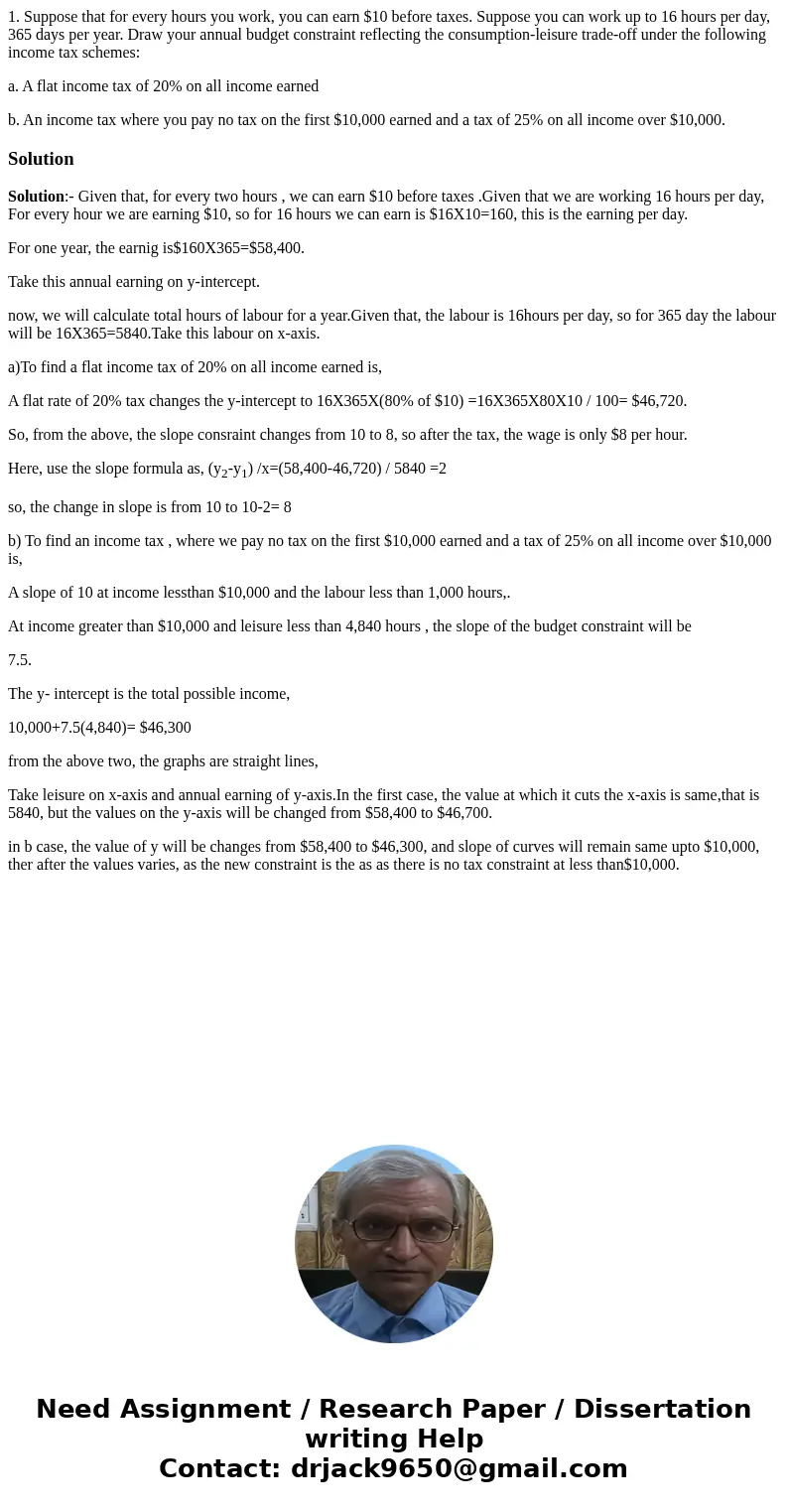1 Suppose that for every hours you work you can earn 10 befo
1. Suppose that for every hours you work, you can earn $10 before taxes. Suppose you can work up to 16 hours per day, 365 days per year. Draw your annual budget constraint reflecting the consumption-leisure trade-off under the following income tax schemes:
a. A flat income tax of 20% on all income earned
b. An income tax where you pay no tax on the first $10,000 earned and a tax of 25% on all income over $10,000.
Solution
Solution:- Given that, for every two hours , we can earn $10 before taxes .Given that we are working 16 hours per day, For every hour we are earning $10, so for 16 hours we can earn is $16X10=160, this is the earning per day.
For one year, the earnig is$160X365=$58,400.
Take this annual earning on y-intercept.
now, we will calculate total hours of labour for a year.Given that, the labour is 16hours per day, so for 365 day the labour will be 16X365=5840.Take this labour on x-axis.
a)To find a flat income tax of 20% on all income earned is,
A flat rate of 20% tax changes the y-intercept to 16X365X(80% of $10) =16X365X80X10 / 100= $46,720.
So, from the above, the slope consraint changes from 10 to 8, so after the tax, the wage is only $8 per hour.
Here, use the slope formula as, (y2-y1) /x=(58,400-46,720) / 5840 =2
so, the change in slope is from 10 to 10-2= 8
b) To find an income tax , where we pay no tax on the first $10,000 earned and a tax of 25% on all income over $10,000 is,
A slope of 10 at income lessthan $10,000 and the labour less than 1,000 hours,.
At income greater than $10,000 and leisure less than 4,840 hours , the slope of the budget constraint will be
7.5.
The y- intercept is the total possible income,
10,000+7.5(4,840)= $46,300
from the above two, the graphs are straight lines,
Take leisure on x-axis and annual earning of y-axis.In the first case, the value at which it cuts the x-axis is same,that is 5840, but the values on the y-axis will be changed from $58,400 to $46,700.
in b case, the value of y will be changes from $58,400 to $46,300, and slope of curves will remain same upto $10,000, ther after the values varies, as the new constraint is the as as there is no tax constraint at less than$10,000.

 Homework Sourse
Homework Sourse